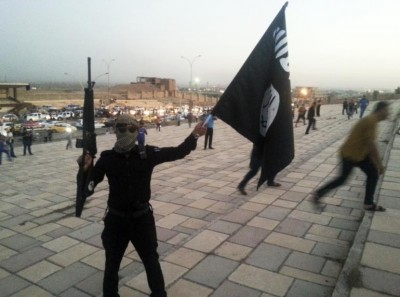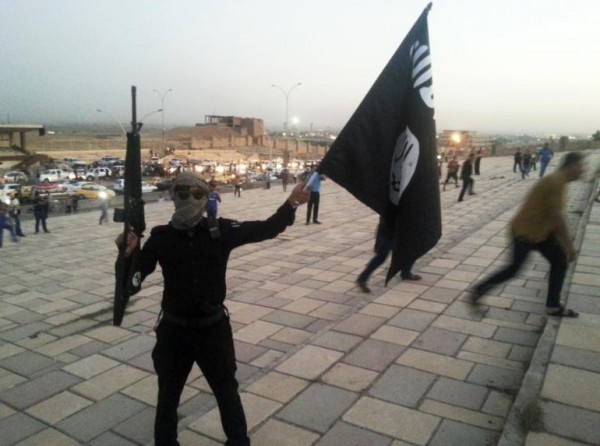 isis
isis
The aerial campaign by a coalition of international and Arab forces against Islamic State (IS) forces in Syria will have lasting repercussions on Syria and the region, as when the IS forces withdraw, other forces will need to step in and fill the vacuum.
If the regime led by Syrian President Bashar Al-Assad is allowed to play this role, it will have gained another bargaining chip in any future political settlement. And if the opposition is in a position to replace IS, then it will have consolidated its position in post-regime Syria.
The question of who is to replace IS is high on the regime’s mind as well as on that of the opposition. The answer, while being affected by the coalition’s current military tactics, will most likely shape the country’s future.
For over 10 days, the coalition has rained rockets and missiles on the headquarters, roadblocks, and buildings held by IS. Collateral damage among civilians in Syria has been extensive, according to opposition sources.
One thing that has particularly worried the opposition is that the coalition while avoiding any attacks on the regime has attacked other Islamist-leaning groups that have been fighting the regime for the past three years.
The Al-Nusra Front in particular came under fire from the coalition, but even potentially “moderate” Islamists also felt the heat.
The lack of coordination between the coalition and the opposition has been such that even the Western-backed Free Syrian Army (FSA) has had to vacate positions close to those of IS, for fear of being targeted.
Observers have noted that in many cases so far it has been the Syrian regular army that has advanced into the positions vacated by IS, which means that the main loser in the current battle is the opposition.
While the strikes have led to dozens of deaths among civilians, IS has refrained from reporting its losses. Since the strikes began, IS fighters have donned civilian attire and are hiding in residential areas.
It is unlikely, therefore, that the coalition campaign has degraded IS to any substantial extent. This is perhaps why even US officials admit that eliminating the extremist group may take years.
FSA leader Asaad Ayyubi is worried that IS may simply regroup as soon as the current campaign comes to an end. Speaking to Al-Ahram Weekly, Ayyubi said he was “confident that IS hasn’t suffered extensive damage. This is because the group has carried out certain precautions, including shifting its offices and positions.”
“Unless there is ground support, the outcome of the aerial campaign will remain limited and IS will survive,” Ayyubi said. IS fighters were “concealing their presence, changing their clothes, and blending into the local community by moving into residential areas,” he added.
“It will be impossible to hunt them down without ground troops,” he said, also voicing concerns at coordination between the coalition and the Syrian regime.
Haytham Manna, a respected member of the opposition, is pessimistic about the future of the current campaign, saying that the porous borders between Syria and Iraq were providing IS with an endless supply of recruits.
“Remember Yemen. The more attacks were waged on Al-Qaeda there, the more the latter expanded,” he said.
Senior US officials are also convinced that the aerial campaign alone cannot finish the job. Martin Dempsey, chair of the US Joint Chiefs of Staff, has spoken of the need for non-US ground troops to go after IS, with perhaps 15,000 being needed for this task.
Other American officials, including Daniel Rubenstein, the US special envoy to Syria, have said that the US needs partners from the “moderate opposition” to help it out.
However, this poses more questions than it answers. It is not clear who in Syria is now regarded as the “moderate opposition” by the Americans. While the latter say they have plans to train and equip the “moderates,” these plans seem to be for the long-run, while the current campaign may turn out to be limited in time and scope.
If the Americans have a partner in this aerial campaign, this has turned out to be the Syrian regime.
When IS positions are bombed, the Free Syrian Army and other armed opposition groups besieging these positions quickly pull out for fear of coming under fire. By contrast, the Syrian regime has wasted no time in moving into the positions vacated by either IS or the opposition.
During the first week of the coalition operations, IS was believed to have vacated nearly 50 villages in northern Syria. These villages have since been retaken by the Syrian army.
Finding itself at the receiving end of US missiles, the Al-Nusra Front is said to have taken the side of the IS in the current confrontation, which if true may lead to further complications for the country.
Mohannad Al-Hosni, president of the Syrian Organisation for Human Rights, an NGO, is furious at what he considers to be “cooperation between the regime and the US”.
Speaking to the Weekly, Al-Hosni said that the Syrian regime was the “primary and sole” beneficiary of the aerial campaign and that it had begun to impose its control on the areas vacated by the armed opposition, suggesting that de facto coordination is emerging between the US and the regime.
For all the US rhetoric about Al-Assad having lost his credibility and being unfit as a US partner, the Americans were actually handing the Syrian president an opportunity to emerge as victorious in the confrontation with the opposition, he said.
This will not have been the first time the Americans have said one thing and done the opposite. US President Barack Obama’s “red line” statement about the use of chemical weapons didn’t survive Al-Assad’s offer to dispose of his country’s reserves of such weapons, for example.
Abdel Qader Al-Laz, former director of the Syrian Police Academy and an outspoken critic of the regime, said that “the chaos that is now happening is the result of the Al-Assad regime’s misrepresentation of the facts. The regime claims that what is happening in Syria is not a people’s revolution but acts of extremism and sabotage,” which was far from being the case.
According to Al-Laz, the opposition was now at the receiving end not only of fire from the regime or IS, but also from the coalition as well. Yet, thousands of former army and police officers, all of whom were well-trained and disciplined, could be called upon to fight IS and the regime, he said.
“There are thousands of trained servicemen who have defected from the regime, and these are now sitting on the sidelines and can be relied upon,” Al-Laz pointed out.
Ahram


Leave a Reply
You must be logged in to post a comment.